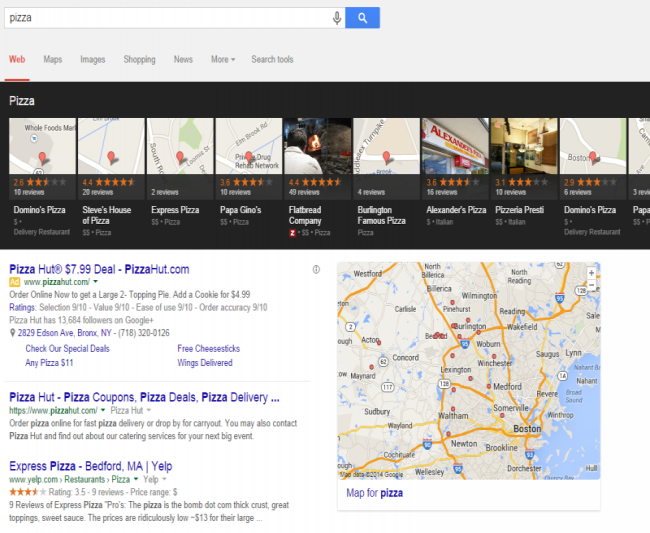When we start to search for some product , we just use a single word like “television” or “gaming TV.” Consumers that searches with those short keywords does actually have a real-world question to ask. They have a need or demand and are seeking further information.
Most of us believe that customers start their search hearty key phrase, but when we look at what they put into the search box, that turns out not to be true.
They actually start with the question, but they shrink the keywords , while entering into search box. For example, if i want to search “What is the best TV in the Boston area that supports high frame rates for gaming and costs under $1,000?” I will just type “Cheap gaming TVs Boston,” or simply “gaming Tvs” in the google search box. But also we get the relevant result. This is due to the google's intent interpretation engine.
Google does a fairly good job of taking someone’s behavioral data, location, and history and interprets their words into an actual question.
For example, if I type in the keyword “pizza” Google believes that I am asking a location-specific question. That leads to Google taking my location data and mixing it with local business results. That type of intent translation results in the example you see below.

Even we reduce our question to a few words in a search box, Google tries to establish intent and translate those words back into a question and gives them the best search results. So trying or targeting for optimization on keywords does not work. Instead, we have to concentrate on the below things :
1. Don’t Start With The Keyword — Consider Questions
Have a list of questions that might be asked by a customer for buying a product when they enter into shop .
2. The Right To Win
After having the list of questions the next step is to determine which of these questions your brand has the right to authority and answer. For example, if your product is shampoo, it could answer questions about how to paint a garage without getting color on your hair. But does the brand really have the right to win on painting or home improvement tips? No, so make sure you are addressing specifically what matters to your customer
3. Define Measurements
Next, we need to define what success looks like for these questions.Let’s say we are selling laundry detergent and decided we want to win on questions like “How do I remove grass stains?” or “What is the best laundry detergent for cold water wash?Both of these questions have a very different intent; the first one is focused on providing information, so success could mean someone looked for this information, we provided the answer and then they left.
4. Refine/Research Questions
Here comes the keywords. Start performing some searches based on the questions. Research on “ how our family members, friends, neighbours would think to search.”
5. Provide Answers
We’ve defined our questions and asked them — now it’s time to think about the answers.They want to optimize the content against keywords, and put the right anchor tags, headers and links in place. Above all the primary objective should be developing the messaging that answers those questions.